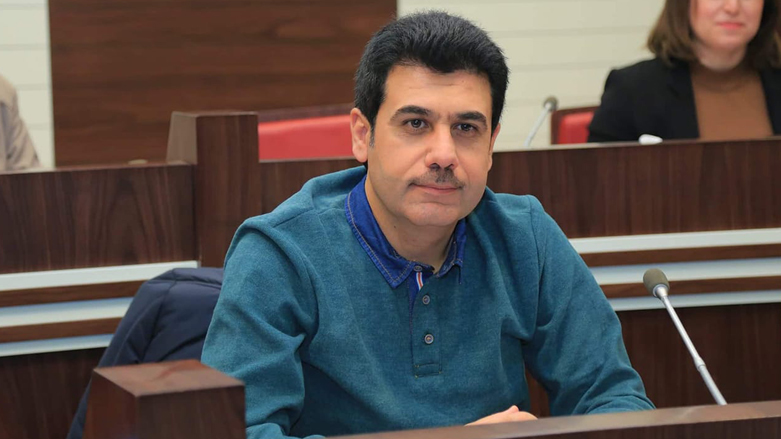'KRG oil and gas dossier is constitutional': Kurdish Legislator

ERBIL (Kurdistan 24) – The oil and gas dossier of the Kurdistan Regional Government (KRG) is constitutional and supported by several articles, Rebwar Babkayi, a member of the Kurdistan Parliament's Natural Resources Committee, told Kurdistan 24 on Saturday.
"Articles 111, 112, and 115 of the Iraqi constitution give the regions the right to manage their oil and gas resources," Babkayi told Kurdistan 24. "No article in the Iraqi constitution mentions that the oil and gas dossier must remain in the hands of the central government only."
Babkayi reaffirmed that the KRG oil and gas dossier is constitutional and that the Iraqi constitution has given the Kurdish people the right to manage their oil and gas.
"The Iraqi Oil Ministry is one of Iraq's most corrupted and failed ministries," Bbakayi stated. "The ministry's project of extending oil pipes to the Jordanian port city of Aqaba on the Red Sea's Gulf of Aqaba and from there to Egypt involves corruption worth tens of billions of dollars."
"The Iraqi parliament should investigate the Iraqi oil minister on the Aqaba project and fire him from his position," he added.
Babkayi pointed out that the Iraqi oil minister calls for the handover of the KRG's oil and gas dossier to the federal government because he is a member of the Shiite Coordination Framework, which works to advance a regional country's agenda and opposes the constitutional rights of the people of the Kurdistan Region.
Read More: Iraqi oil minister calls for establishing new oil company in Erbil
"The Iraqi Federal Supreme Court decision in this regard is unconstitutional," Bbakayi reaffirmed.
Following the Iraqi Federal Supreme Court's (FSC) ruling that the Kurdistan Region's oil and gas law is unconstitutional, the KRG sent delegations to Baghdad to negotiate on the outstanding issue. During those negotiations, the Iraqi Ministry of Oil proposed establishing a company called the Kurdistan Region Oil Company (KROC) in Erbil to be managed by the central government to resolve the issue.
The court's ruling noted that KRG's Oil and Gas Law issued in 2007, under which the autonomous region has managed its oil affairs with international and local companies, is "unconstitutional," a claim the Kurdish authorities strongly refute.
Read More: KRG rejects Baghdad's proposal for an Iraq-controlled Kurdistan Region Oil Company
In the absence of a new oil and gas law, the Iraqi government still uses Law No. 101 from 1976. The KRG says the law is one of the leftover "centralized laws" from the Baathist era and is, therefore, incompatible with the spirit of federalism that was supposed to prevail in post-2003 Iraq.
